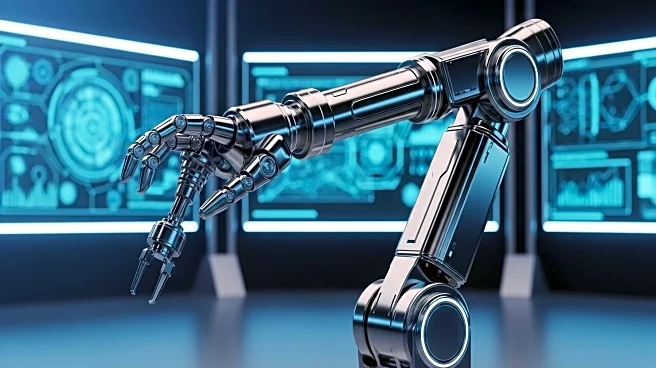What's Happening?
Rodney Brooks, a renowned roboticist and co-founder of iRobot, has expressed skepticism about the current investment trends in humanoid robots. Brooks argues that despite significant venture capital investments, humanoid robots are unlikely to achieve the dexterity required for practical use, particularly in tasks involving fine motor skills. He highlights the complexity of human hand movements, which current robotic technology cannot replicate. Brooks also raises safety concerns, noting that full-sized humanoid robots require substantial energy to remain upright and pose risks if they fall. He predicts that successful future robots will likely abandon human-like forms in favor of more practical designs with wheels and multiple robotic arms.
Why It's Important?
Brooks' critique underscores the challenges facing the humanoid robot industry, which has attracted billions in investment. His insights suggest that current technological approaches may not lead to viable products, potentially resulting in wasted resources. This skepticism could influence investor confidence and redirect funding towards more promising areas within robotics. The safety concerns he raises are particularly relevant as companies aim to integrate humanoid robots into everyday environments, including homes and workplaces. Brooks' predictions about the future design of robots could shape the industry's development, steering it away from human-like forms towards more functional designs.
What's Next?
The industry may need to reassess its focus on humanoid robots and consider alternative designs that prioritize functionality over form. Investors might become more cautious, potentially slowing down funding for humanoid projects. Companies could shift their research and development efforts towards improving robotic dexterity and safety features. As Brooks suggests, the future of robotics may involve designs that are less human-like but more practical, which could lead to new innovations and applications. The industry will likely continue exploring ways to enhance tactile data technology, which is crucial for improving robot dexterity.
Beyond the Headlines
Brooks' critique highlights broader ethical and practical considerations in robotics, such as the balance between innovation and safety. The industry's focus on humanoid robots raises questions about the societal implications of integrating robots into daily life, including privacy and security concerns. As robots become more prevalent, there will be ongoing debates about their role in society and the potential impact on human employment. Brooks' predictions about the future design of robots suggest a shift towards more utilitarian forms, which could redefine public perceptions of robotics and influence cultural attitudes towards technology.









